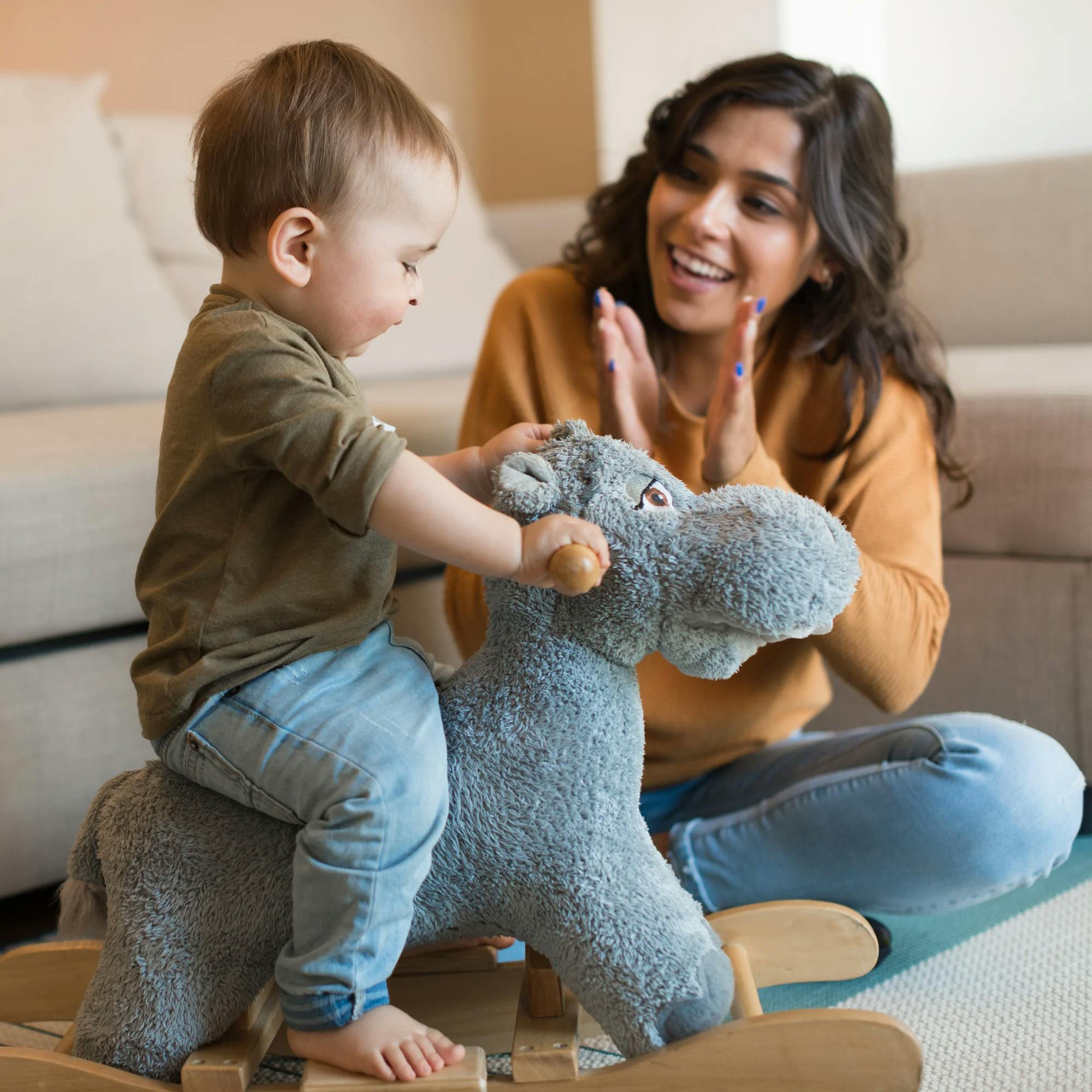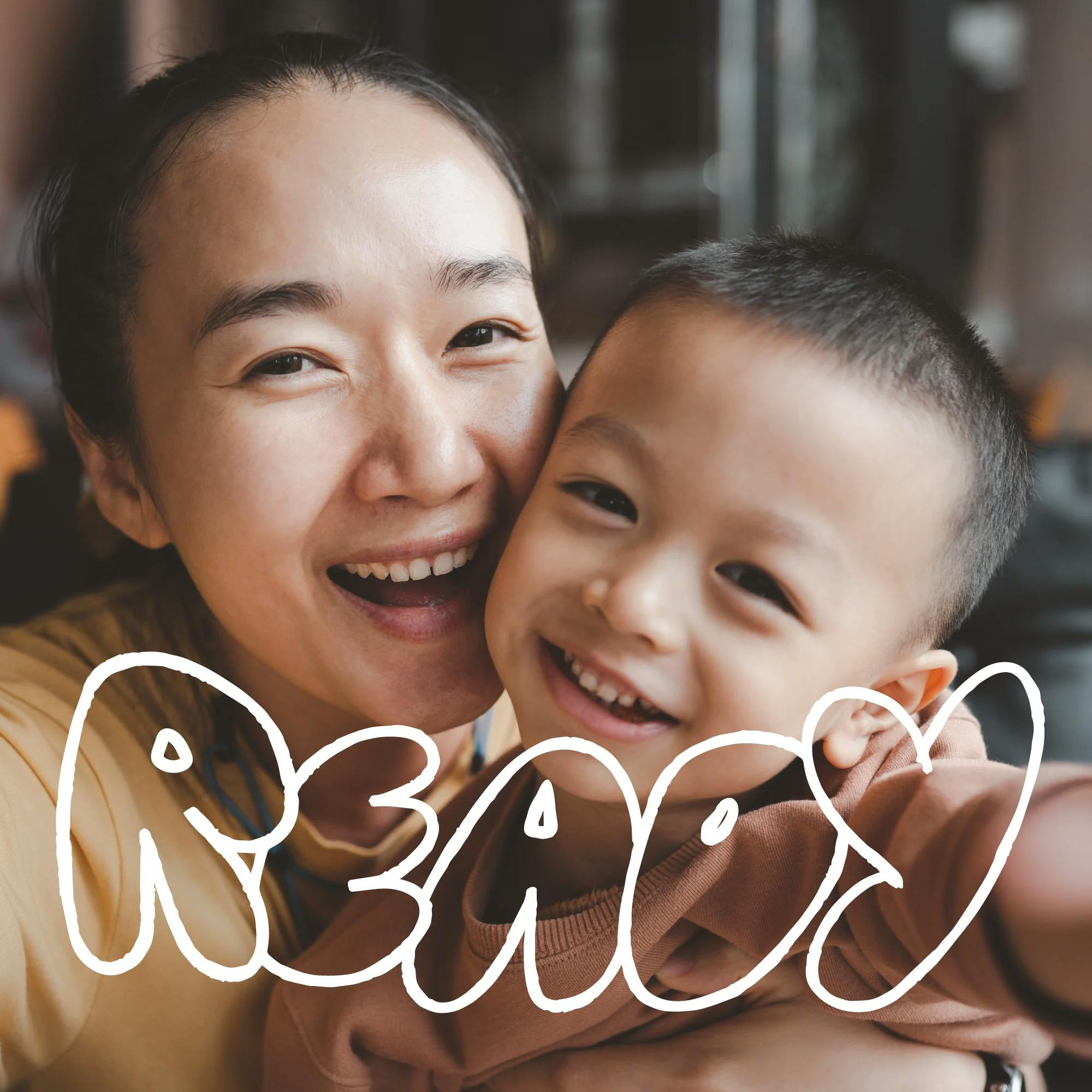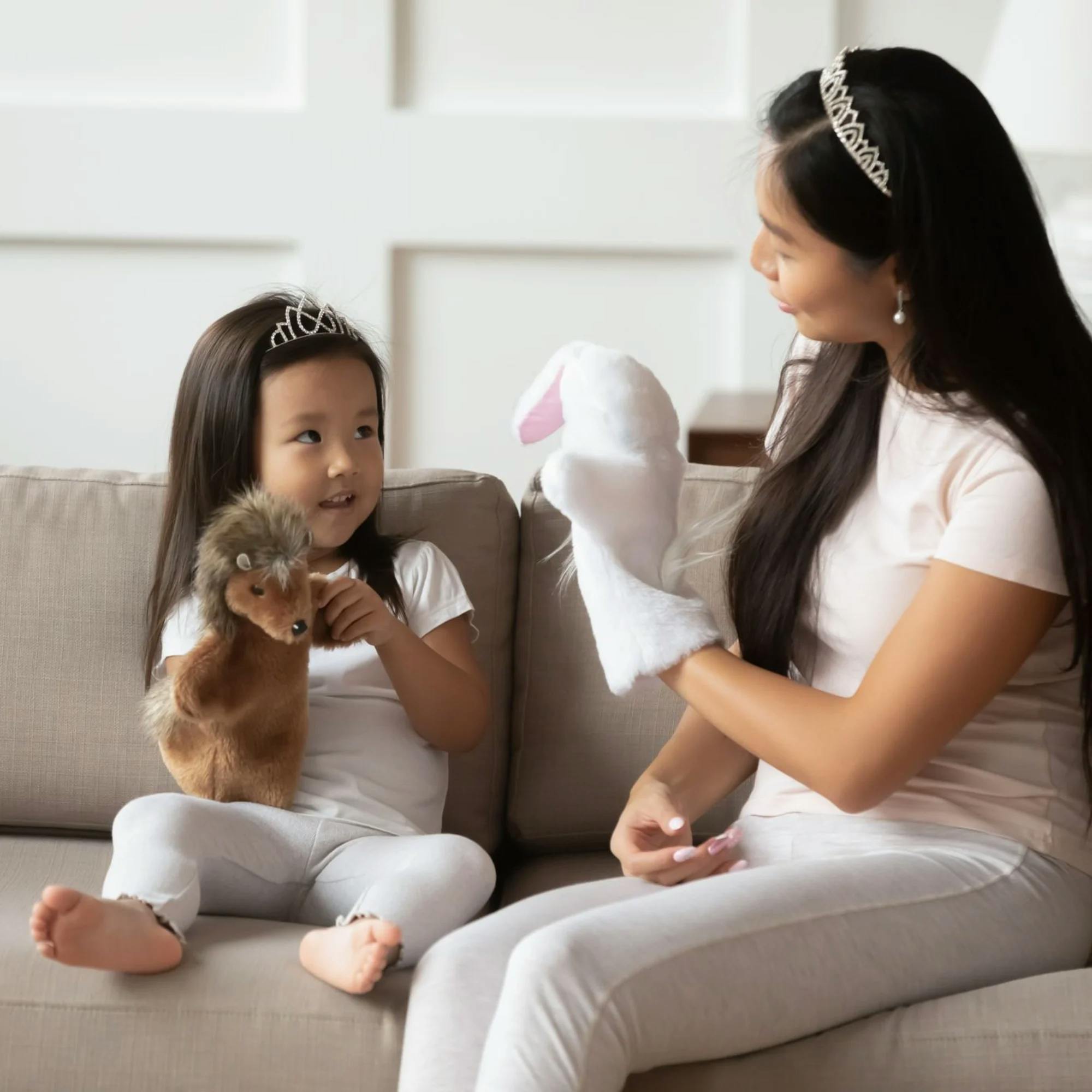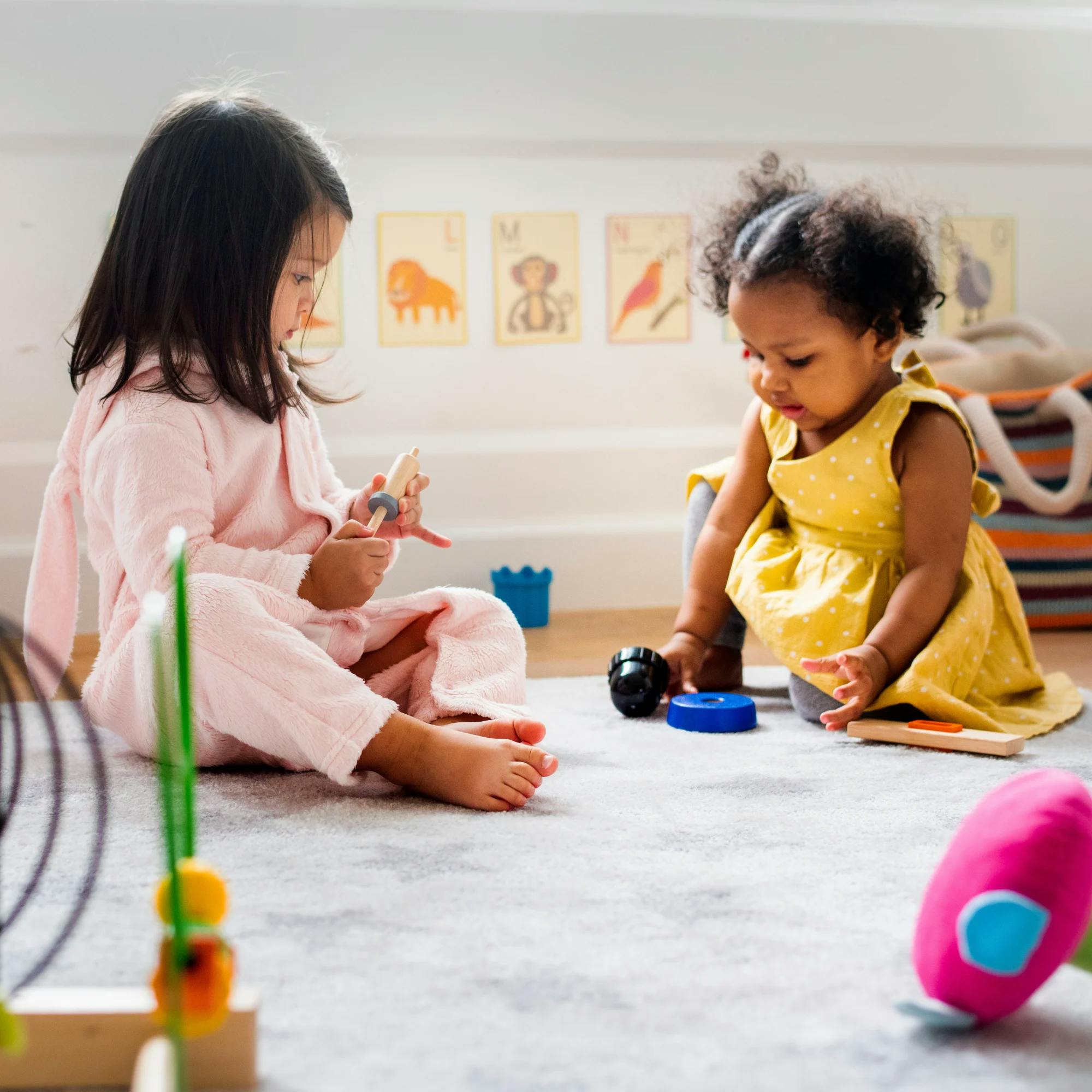If you’re the parent of a baby or toddler, you may wonder when they’ll start to talk. The first word is an exciting milestone, and it’s one that many parents and caregivers anxiously await.
While kids develop at their own rates, there is a general timeline for speech and language development and a typical age for a baby’s first word. Read on to learn more about communication milestones, tips for helping your child use more words, and how to know if your toddler might need speech therapy.


What is the average age for a child’s first word?
The first word typically happens around the 12-month mark. For some kids it may be a little earlier, and for others it’s a little later.
Before this point, perhaps your child was saying “mamama” or “dadada,” but it wasn’t clear if they were referring to a parent or simply babbling away. It’s typical for 6- to 9-month-olds to babble in this way. But by around age 1, it’s likely that “Mama” or “Dada” are being used specifically for you!
You may also have heard your baby imitating sounds. The 9- to 12-month stage is a time of huge verbal growth. Your baby will typically begin imitating some simple, non-speech sounds like “Vroom! Vroom!” for a car, or “Moo!” for a cow.
Then comes the magical first word! And while “Mama” and “Dada” are common first words, there are many others. As they’re learning to talk, many toddlers start with words like “hi,” “no,” “ball,” “dog,” “more,” or “please.”

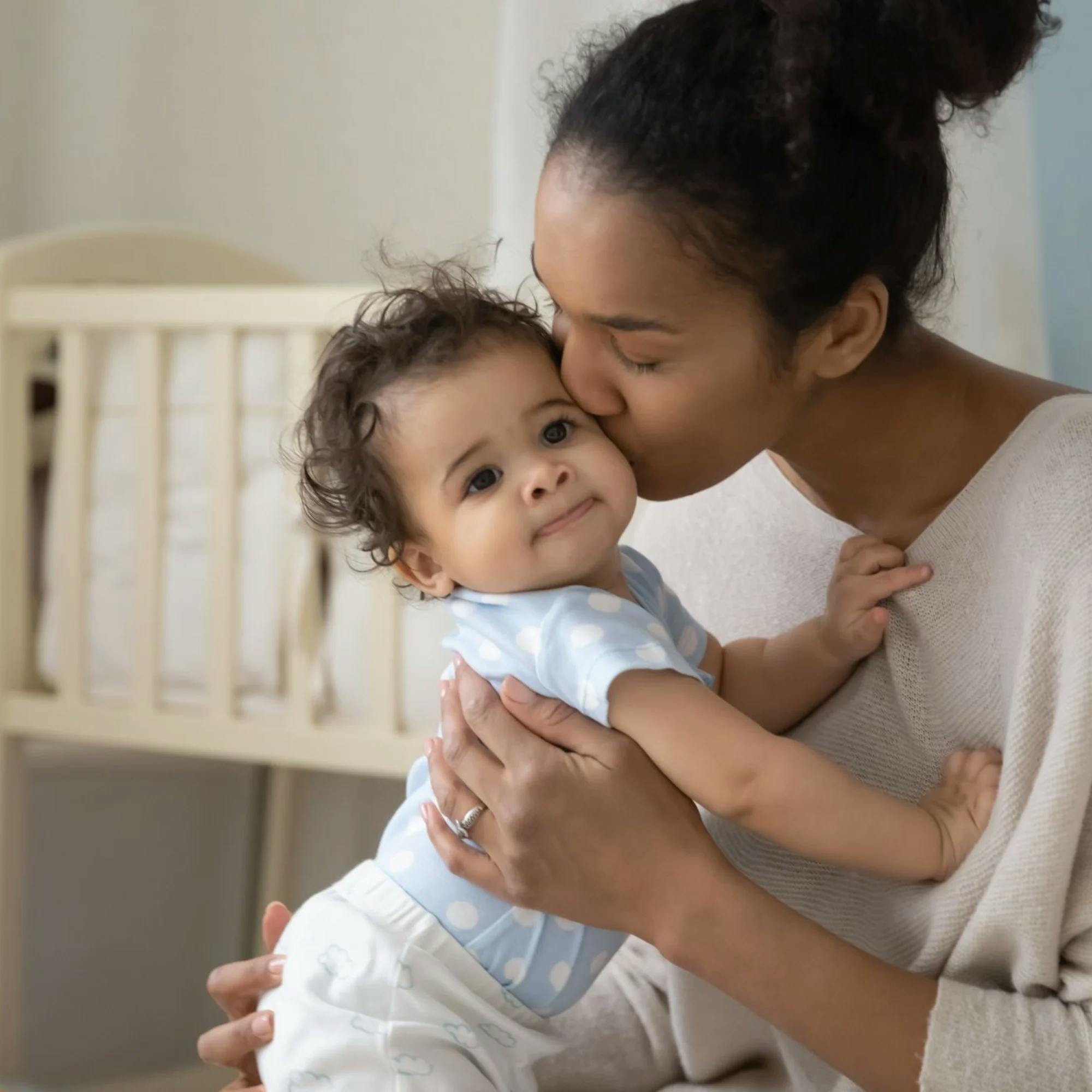
How do toddlers use words?
As toddlers begin saying more words, they tend to label items first. So maybe they label you, other family members, or friends by saying their name. Or they name the “cat” they see on the sofa, or the “car” out the window.
By age 18 months, toddlers are typically starting to use words more purposefully and for a function. For example, they’ll start to request items using words. They may ask “Cookie?” or “Ball?,” which shows they’re learning that words can be used for a purpose. This is an exciting milestone!
Which speech sounds develop first?
As your child says more and more words, they’ll typically be learning new speech sounds as well. Between the ages of 2 and 3, we expect a child to have mastered the /p/, /m/, /h/, /n/, /w/, and /b/ sounds. They should be close to mastering their /k/, /g/, /d/, /t/, and /ng/ sounds. They should also have started using the sounds /f/ and /y/.
You may still hear your child saying things like “nana” for “banana,” or “ca” for “cat,” dropping the final sound. However, these speech errors typically go away by the time a child turns 3.
While all children are different, here’s a general rule of thumb: By the age of 24 months, familiar listeners, such as family members, should be able to understand about 50% of your child’s speech.
3 ways to help your toddler learn to talk
Let’s look at some ways you can help your child start to use words or increase the number of words they say.
1 Use communication temptations
Communication temptations are essentially ways to encourage a child to communicate. We do this by offering the child a toy, snack, treat–basically anything desirable–without rushing to give it to them.
You can place one of these desirable items just slightly out of your child’s reach, so they have to verbalize a word like “Help!” in order to receive it. You could also show your child options of things to eat or play with, without automatically handing it to them.
The important part with communication temptations is the pause.
The important part is the pause. We’re not hurrying to give the child what they want. This is where the temptation piece comes into play. The child needs time to process and problem solve. They can see the snack or toy they want, but they have to figure out how to get it from you. They will learn to do this through verbalizations.
Give your child enough time to try to request the item from you. But even if they don’t, after the pause, go ahead and give it to them. Don’t withhold the item forever!

2 Model language for your child
Modeling, or demonstrating, language is another helpful way to get your child to start talking. As you go about your day with your toddler, make it a point to talk frequently. Talk about what you’re doing, what your child is doing, things you see--the key word here is talk!
Toddlers learn to talk by hearing someone else model words for them. Even if they aren’t yet saying words, they are taking them all in and learning what they mean. The ability to understand words is called receptive language. Receptive language skills are key in developing the ability to talk!

3 Give your toddler choices
Another easy, practical way to interest a toddler in talking is to give them choices. Offer your child two choices for questions such as, “Which shirt do you want to wear?” or “Which toy do you want?” Start by using motivating questions they’ll want to answer.
If possible, it’s best to show your child two options they can pick from. If you ask, “What do you want to eat?”, show them their snack options–say, crackers and a banana–and model each word as you show them the food. Hold one item in each hand. Maybe your child will point, reach, or give you some kind of indication as to the snack they want. Prompt them to imitate the word.
Maybe your child will point to or reach for the snack they want. Prompt them to imitate the word.
So, if they point to the crackers, you can say, “Crackers? Mmmm, you want crackers?” Even a simple answer like “Yes!” or “More!” would be a great response here! Model the first sound for your child–“C-c-crackers!”–to see if they can imitate just that sound.
One important note: Again, don’t withhold the item too long. Just give your toddler a few opportunities to respond before handing over the snack or toy.
How do you know if your child has a speech delay?
If your child is older than 12 months and hasn’t yet said their first word, go ahead and reach out to a speech therapist or your child’s pediatrician. Your toddler may simply be considered a “late talker.” But your pediatrician will likely suggest seeing a speech therapist for an evaluation. If your child does have a speech delay, beginning speech therapy right away will help them make progress as soon as possible.
If your child is older than 12 months and hasn’t yet said their first word, reach out to a speech therapist or your pediatrician.
Pediatricians often have a list of speech therapy companies they recommend. If you’re using health insurance to cover speech therapy, it’s likely that your insurance will need a written referral from your pediatrician. So talking with your child’s doctor first makes sense. You can call their office or make an appointment to go in and discuss your concerns.
You can also take our simple online screener to find out if your toddler would benefit from a speech and language evaluation. You can discuss your results with one of our specialists for free. The sooner you take that first step, the sooner your child can get any support they may need!
How Expressable Can Help
Concerned your child isn't reaching age-expected milestones? Looking for communication support from a professional? Expressable is a national online speech therapy practice serving children and adults. We treat all major areas of communication and feeding, offer flexible hours including evenings and weekends, and accept most major health insurance plans. We’re proud to have earned more than 3,000 5-star reviews from our clients (4.9/5 average).
Our therapy model is centered on parent and caregiver involvement. Research proves that empowering caregivers to participate in their loved one’s therapy leads to better outcomes. That’s why we combine live, 1-on-1 speech therapy with personalized education and home practice activities for faster progress.
Communication is more than words. It’s how we share how we feel and show who we are. We’re here to help you or your child do just that.
 Abby Barnes, M.S., CCC-SLP
Abby Barnes, M.S., CCC-SLP